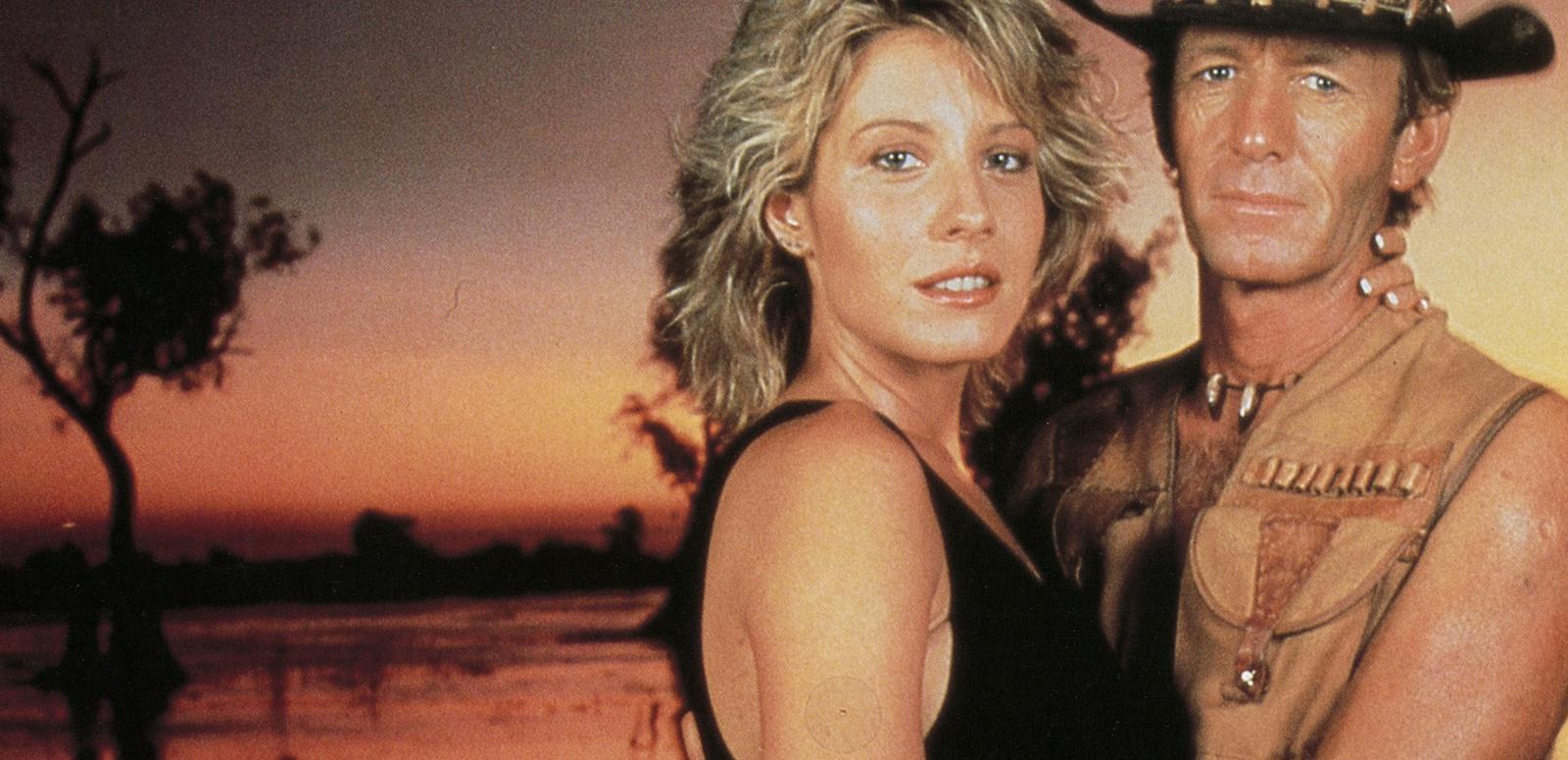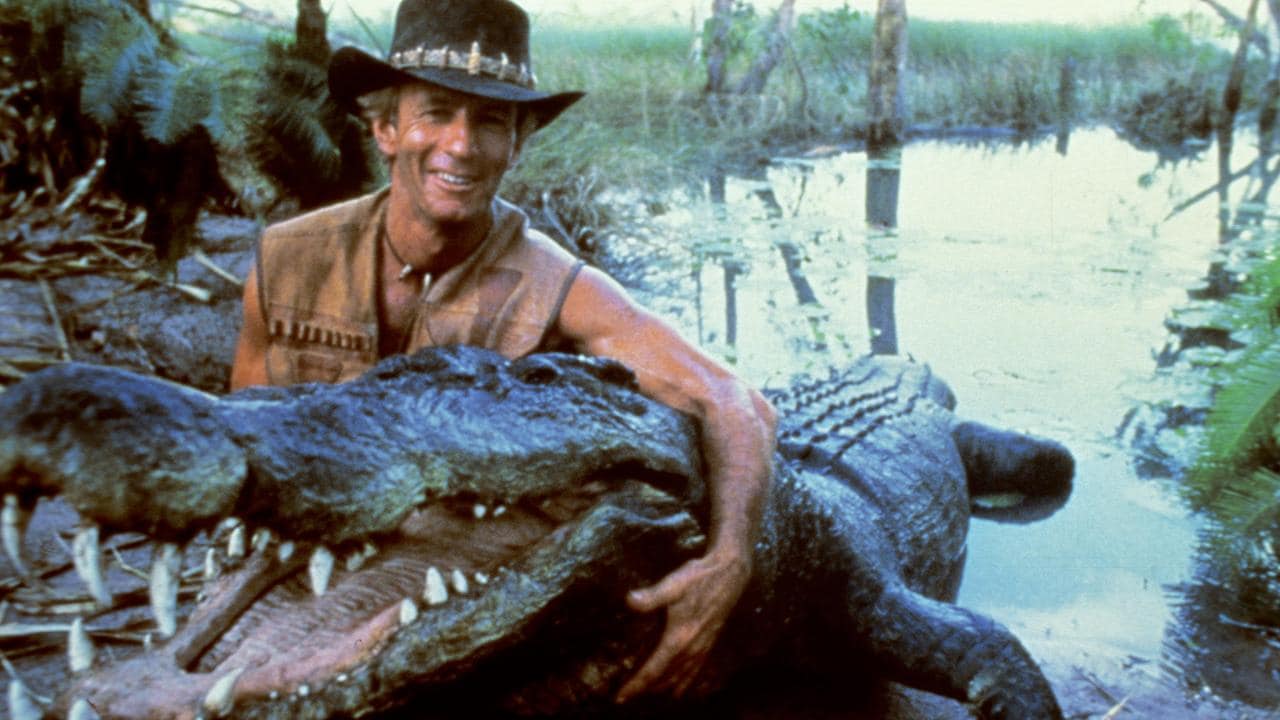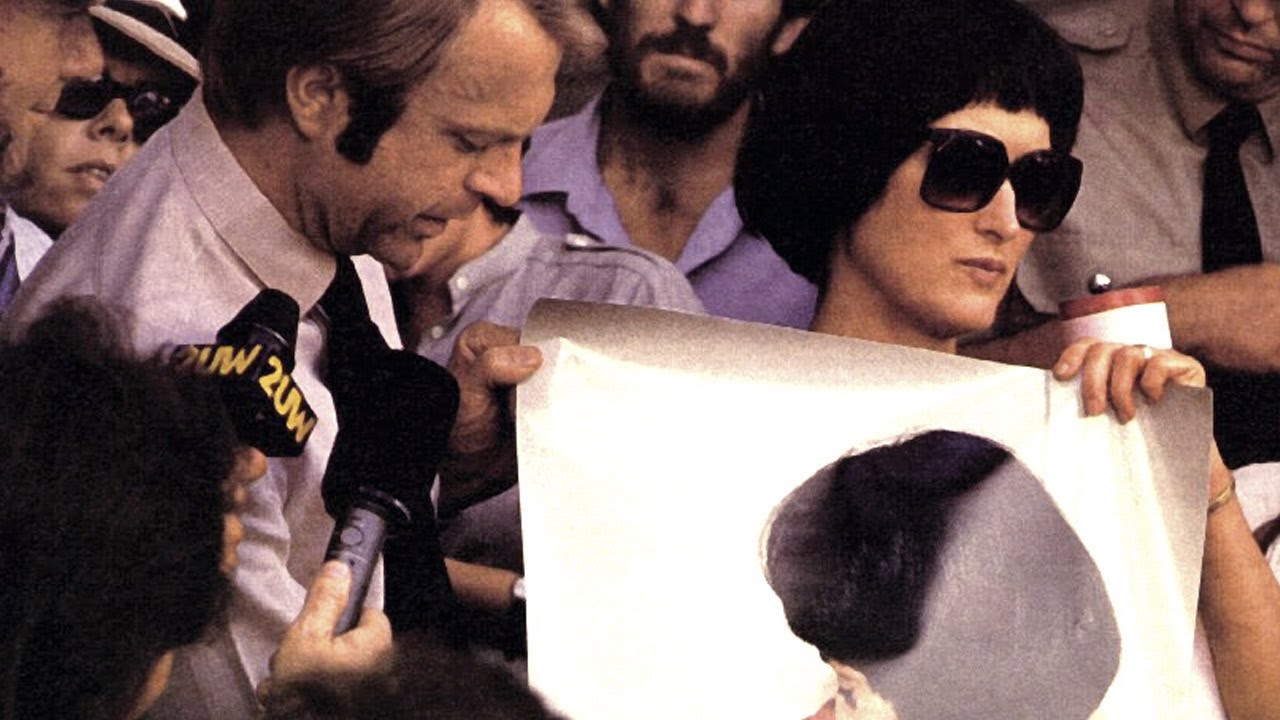The international success of Ozploitation films such as Crocodile Dundee pulled in a large income for Australian films, but created a reputation cemented in stereotype and inaccuracy.

“Ned Kelly is pathetic. So are the bushrangers.” These were the words out of actor and writer Paul Hogan’s mouth when he described the motivation behind his film, Crocodile Dundee. Released in 1986, the film should be considered the true pinnacle of Ozploitation, that is, exploiting Australian stereotypes for comedic or dramatic effect.
Crocodile Dundee traces Michael J. ‘Crocodile’ Dundee, played by Hogan, as he travels to New York City with a reporter doing a story on him. Being an apparently legendary bushman and with a reputation as a crocodile wrestling, hard-living Australian bloke, Dundee finds himself in various humorous situations with Americans and, predictably, falling in love with the reporter. The film was the genesis of many famous quotes, notably “That’s not a knife. That’s a knife,” uttered by Dundee in response to being held-up at knifepoint in New York.
Before the film, Paul Hogan already had a reputation amongst Americans as a stereotypical Australian through his television advertisement work. With sun-bleached hair and an open shirt, he encouraged viewers to ‘have a Winfield’, or told them he’d ‘slip an extra shrimp on the barbie’ for them. As a comedian and a storyteller, Hogan can be noted for never shying away from marginalising himself playfully or being afraid to poke fun at the culture he saw around him.
Upon its release, Crocodile Dundee became the highest-grossing film of all time in Australia, also surpassing 1981’s Mad Max 2 as the most commercially successful Australian film at the worldwide box office. It was evidently a huge hit in America, with over 46 million tickets sold and the public flocking to see this hard-talking, rough-housing Australian from the advertisement appear on the big screen. But there remained, and still remains, a deeper question. Were they laughing with us, or at us?
The flaws of the film are obvious to anyone watching Crocodile Dundee 30 years after its release. Before issues of stereotype are raised, there are also the more obvious issues of transphobia, homophobia and racism in the film. When Dundee assaults a woman at an art gallery in New York, the outraged victim is consoled by Dundee’s love interest when she tells her, “It’s okay. He’s Australian.” Not only is this sort of behaviour offensive, but the film ties in this offensive behaviour with the cultural identity of Australians. Most Australians would not identify with kangaroo hunting, crocodile wrestling, assault, idiocy and disregard for social convention, not now and most likely not on the films release either.
Granted we are talking about a different time, when awareness for LGBT rights and gender equality existed but was not at the forefront of our minds as now. However, what Crocodile Dundee did for cultural regard towards Australian filmmakers both in quality and content was a major falter in a time of burgeoning talent. The success of the film only shows the willingness of Americans to laugh at the stereotypes of Australian culture and feel better in themselves and their society, disregarding the more aesthetically beautiful and interesting examples of Australian film such as Mad Max and Picnic At Hanging Rock.

Ozploitation was explored in the 2008 documentary Not Quite Hollywood: The Wild, Untold Story Of Ozploitation! Written and directed by Mark Hatley, this documentary took a look at the Australian films considered too vulgar and offensive to be included in an official history of Australian cinema. Quentin Tarantino, whose 2003 Kill Bill pays homage to the exploitation genre with cheap thrills, blood and violence, had a major hand in the documentary, which traces the introduction of the R rating that allowed more varied Australian films to be show. The B-list movies shown in the film, Hatley argues, are more important to Australian culture than larger titles, of which we could include Crocodile Dundee.
Crocodile Dundee spawned two sequels, and was subject again to international interest in 2018 when American comedian Danny McBride appeared in a veiled advertisement for Australian tourism under the guise of a film trailer for ‘Dundee: The Son of A Legend Returns.’ The film and all its stereotype has remained in the national consciousness for decades, and continues to be the reason so much of Australia falls prey to what international audiences decide we look and behave like.
In 1988, Fred Schepisi released his film Evil Angels, alternatively titled A Cry In The Dark. Starring popular actors Sam Neill and Meryl Streep, the film follows the sensational true story of the death of two-month old Azaria Chamberlain, killed by a dingo near Uluru, and the subsequent media frenzy that saw her parents falsely imprisoned for over three years. Despite the high publicity of the case and the horrific media storm that actually impacted the case itself and most likely led to the incorrect sentence, the film, which hit cinemas soon after the Chamberlains release, was a commercial failure.

However, what most people associate with the film and with the Chamberlains story now is the phrase, ‘A dingo ate my baby’. International audiences and American culture grasped this phrase as they grasped the one-liners of Crocodile Dundee. Here was another easy way to poke fun at Australians through our representation in international films, despite the truly heartbreaking and horrible actuality of the phrase’s inception. This quote, which has never been consolidated but is decried by Streep in Evil Angels as, “the dingo’s got my baby!”, has been referenced in such popular shows as Seinfeld, Buffy The Vampire Slayer and even in The Simpsons.
Despite the flare of output in Australian cinema during the 1970’s and 80’s, the international success of the Ozploitation style and the willingness of writers and filmmakers to play to these stereotypes caused serious setbacks in the professional recognition of Australian cinema as an industry on par with Britain and America. While many might claim the characters in these films, whether they be macho, alcoholic kangaroo shooters or hysterical, irritating housewives, could have been relatable to the public at the time of release, those who have truly lived within Australia culture know the depth of our history and its impact on our daily lives, our globalism and push for a multicultural society and our singularity in trends of speech and artistic output.
While we saw glimpses of these accurate portrayals of Australia with the emergence of The New Wave movement, it was only when filmmakers decided to move away from the outback and into the suburbs that films that still resonate with Australian society today were produced.
Subscribe to FIB’s Weekly Alchemy Report for your weekly dose of music, fashion and pop culture news!







